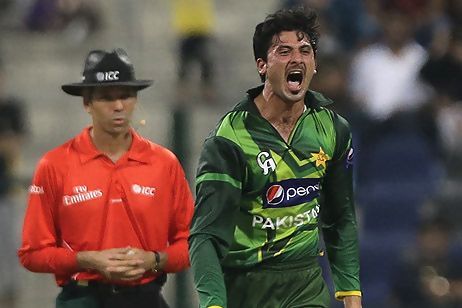The Pakistan Tour of India highlighted how far the lines between cricket administrator and broadcaster had blurred since last the sides met, the evident bias being an ominous sign of things to come.

By Nasser Khan (7th January 2012)
The importance of a free and independent media is not a new concept. At its most effective, fear of the flashlight of publicity whether actual or perceived keeps individuals honest, challenges administrations and fights corruption – a safeguard and investigator rolled into one. Contrasting this ideal to the BCCI-controlled coverage of the limited overs series during Pakistan's short tour of India that we’ve witnessed, and the distance is more significant than even significant financial wherewithal should allow for in a free market. Contrasting the coverage with that experienced five years ago, when last Pakistan met India, combined with the insidious nature of the bias given the cricket board has chosen to push it’s propaganda through the mouths of those we have come to respect as former legends of the game.
One of my favourite passages regarding the independence of the press was spoken by President Kennedy:
No President should fear public scrutiny of his program. For from that scrutiny comes understanding; and from that understanding comes support or opposition and both are necessary. I am not asking your newspapers to support the Administration, but I am asking your help in the tremendous task of informing and alerting the American people. For I have complete confidence in the response and dedication of our citizens whenever they are fully informed.
I not only could not stifle controversy among your readers- I welcome it. This Administration intends to be candid about its errors; for as a wise man once said: "An error does not become a mistake until you refuse to correct it." We intend to accept full responsibility for our errors and we expect you to point them out when we miss them.
Without debate, without criticism, no Administration and no country can succeed and no republic can survive. That is why the Athenian lawmaker Solon decreed it a crime for any citizen to shrink from controversy. And that is why our press was protected by the First Amendment-- the only business in America specifically protected by the Constitution--not primarily to amuse and entertain, not to emphasize the trivial and the sentimental, not to simply "give the public what it wants"-but to inform, to arouse, to reflect, to state our dangers and our opportunities, to indicate our crises and our choices, to lead, mold, educate and sometimes even anger public opinion.
The hand of the BCCI is apparent at every aspect of games played in India, beyond being responsible for the team taking the field. In the third and final ODI, Shoaib Malik was clearly hit outside the off-stump before being given out LBW, but all viewers were fed by the Board-controlled broadcaster was a half-cocked replay which proved the ball hit outside the off-stump, and one real-time replay to which the commentator mumbled some half-cocked excuse. In contract, we were treated to a plethora of replays from every conceivable angle for the bouncer which struck Umar Gul. Such bias is unbecoming of a sport like cricket, or any sport for that matter.
The post-match ceremony consisted of such celebration, both from the Indian team and the host Ravi Shastri, you could be led to believe the series belonged to India. Shastri’s questions also focused on the future, about the young bowlers and no referrals to the 2-1 series scoreline. MS Dhoni was awarded Man of the Match for his 36 off 55 balls– the top score in the match, but surely overshadowed by Ajmal’s 5-24, no mean feat for a spinner in India. A player from the winning side should always be awarded the man of the match was the argument, but the precedent had been set after Dhoni was given the award after the first ODI. These are but a few incidents from the 3rd ODI which in isolation may appear minor, but when combined with numerous other instances in the series form a consistent catalogue of actions designed to “protect” the domestic viewer from the cricketing realities.
To suggest this issue is isolated to Indian cricket is false - there is always a natural bias in the host broadcaster. Sky Sports are pro-England and are not controlled by the ECB, quite the opposite in fact. It was reported the PCB have also paid journalists to report positively on their administration and the Pakistani media, despite as Misbah famously said “follow their own agendas,” are often at odds with the greater cricketing good.
Listening to Sunil Gavaskar during the Jeet lo Dil series, he was intelligent, measured and unbiased – a fine pundit exhibiting exactly the analysis which helped him reach the top echelons of the game as a player. However, the BCCI spirit that now possesses Gavaskar has left behind a shell, spewing the most basic of insights trying to represent the Indian team in the best light.
It’s Indian fans who should be most concerned – the evident bias is what has led to a refusal to accept it’s weaknesses in recent times. Even that in itself is not central to the concerns, for it’s an internal matter. However, when all fans forced to watch some of the unchallenged drivel that is spouted by the robotic yes-men, then it does impact outside the borders of the country.
The on-field series can be termed a success – the games were competitive in front of large, passionate crowds, but it was certainly a series which was best viewed with the commentary turned down, something which will only become more prevalent in matches involving India in future. Conform or stay home, that’s the message, only time will tell how the commentators and fans will respond.










